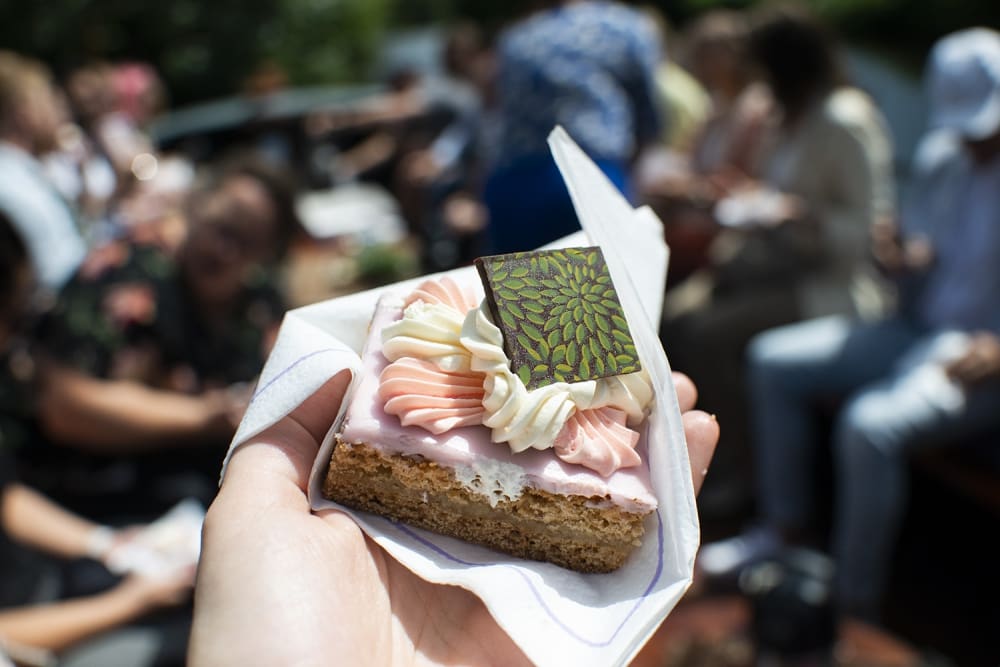Northern Dutch Dining
With its long coastlines and vast agricultural lands, the north is home to a great range of local food and drink.
The coastal and island areas obviously have a long tradition of seafood dishes. The Wadden Sea shrimps and oysters are especially worth a try. Going just a bit further land inward, however, traditional staples are typically heavy, nutritious goods like beans, grains and potatoes. In the city of Groningen, the eierbal is a local delicacy: similar to a Scotch egg, it’s a hard boiled egg wrapped in a curry-flavourer ragout and deep fried with a golden breaded crust.
Sweet treats are in ample supply in the north, too:
- Dúmkes, cookies with nuts, are popular in mainland Friesland and on the island of Ameland
- Poffert, with varieties in Friesland known as boffert is a type of simple cake, somewhere between a brioche and a cake, and served in slices
- Oranjekoek, which is actually pink but has its name based on orange zest in its icing, is a popular birthday treat in Friesland
- Sûkerbole (sugar bread) also hails from Friesland, and makes excellent French toast
- Oudewievenkoek (or old lady’s cake) is a spiced cake with a taste of anise seeds widely available in the region
- Groningerkoek is traditionally made with a cinnamon/anise spice

Groninger mosterdsoep is a unique local soup made with the area’s crop of mustard seed.
There’s a growing interest in locally produced goods, which can be bought at great local farmer’s markets and streekmarkten (local goods markets) and the region is rediscovering old traditions while establishing new ones.
The island of Terschelling is known for its cranberry bogs, and you can buy all kinds of cranberry-based product on the island.
Texel is famous for its mutton, which you can find on menus all over the country
Sheep cheeses are local specialties, including in Drenthe.
Dried and spiced sausages (with cloves) are another popular regional product, with each province offering a different taste.
In terms of production, bitters and gins play a much larger part in the Northern Netherlands than beer.
One of the largest distilleries in the country, Hooghoudt, was founded here and still has its main offices in Groningen. It produces a wide range of liquors and gins, and has adopted several traditional alcoholic drink recipes from the Northern Netherlands. Remarkably, it also produces a range of non-alcoholic lemonades.
Although it is originally from Amsterdam, berenburg (made of Dutch gin and herbs) remains more popular in the Northern Netherlands. Regional varieties include Sonnema Berenburg and Weduwe Joustra.
A Dokkumer coffee is the regional interpretation of an Irish coffee and consists of coffee with berenburg and whipped cream.
The Frisian Islands have their own kinds of bitters, called a Juttertje (on Texel) or Schylger Jutters-Bitter (on Terschelling). Less popular is the traditional Fladderak, a liquor flavoured with lemon and cinnamon.
The north is also home to a lot of great breweries: check out the options nearest you in Friesland, Drenthe and Groningen.
